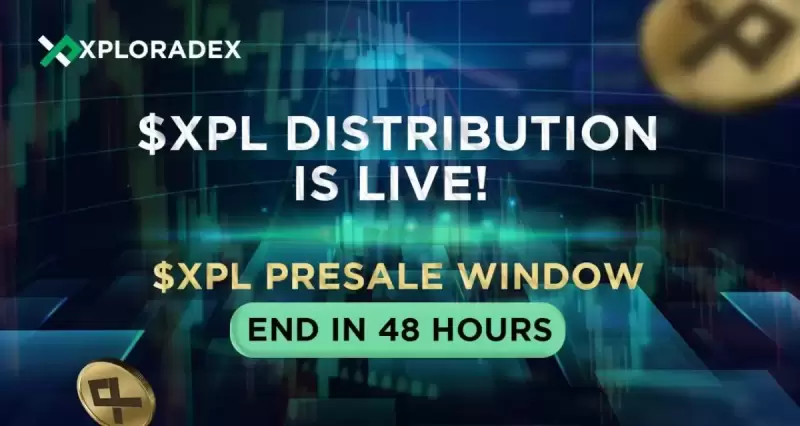 |
|
 |
|
 |
|
 |
|
 |
|
 |
|
 |
|
 |
|
 |
|
 |
|
 |
|
 |
|
 |
|
 |
|
 |
|
Nachrichtenartikel zu Kryptowährungen
Former UK Prime Minister Liz Truss Expresses Support for Bitcoin, Deep Reservations About CBDCs
Jan 10, 2025 at 10:00 pm

Former UK Prime Minister Liz Truss has expressed support for Bitcoin and a deep skepticism toward central bank digital currencies (CBDCs) during an interview with Peter McCormack, host of the What Bitcoin Did podcast.
Truss, who served briefly as Prime Minister and Leader of the Conservative Party, discussed monetary policy, the independence of the Bank of England, and the implications of CBDCs during the interview.
During the interview, Truss explained her stance on digital assets, highlighting their ability to “take power away from central banks.” She stated:
“I am a supporter of Bitcoin and cryptocurrency. I think they’re a good thing. I think they help take power away from central banks… I’m very, very worried about anything like a central bank digital currency completely. I think they give the state huge amounts of power.”
She expressed concern over the unchecked influence wielded by central banks, especially the Bank of England, which she argued remains “unaccountable.” Referring to quantitative easing (QE) and inflationary pressures, Truss noted:
“We’ve had huge levels of inflation, we had QE that went on for far too long, asset price spikes… and the result was inflation. We were told beforehand that it was going to be transitory and it wasn’t transitory, even though the lessons had all been learned before.”
According to Truss, these policy decisions—combined with the lack of accountability—have resulted in significant financial strain on British households.
McCormack pressed Truss on whether a central bank is truly necessary. She underscored that if the UK decides to maintain a central bank, it must address its governance:
“That’s an interesting question. Well, if we do have one, it ought to be accountable. So at the moment, we’ve got the worst of all worlds—we’ve got an unaccountable central bank.”
Truss criticized the transfer of power from the Treasury to the Bank of England dating back to former Chancellor Gordon Brown’s move to grant the bank operational independence. She suggested that a lack of robust oversight led to policy missteps with long-term consequences.
“What Gordon Brown did in making it independent… you can see the results. We’ve had QE for far too long… supporting very, very lax government spending policies with printing money.”
Truss made it clear she sees potential danger in an official central bank digital currency. Highlighting her primary misgiving, she said:
“I think they give the state huge amounts of power and what we know is overweening state power is not a good thing… it also feels like part of the surveillance State.”
Her remarks echoed broader concerns within the cryptocurrency community, where critics warn that a CBDC could enable governments to monitor and control individual transactions more directly than with cash or decentralized cryptocurrencies.
While reflecting on her tenure in government, Truss revealed that delving into monetary policy matters was discouraged:
“When I was at the Treasury and tried to ask about monetary policy, I was told it wasn’t our responsibility, it was the responsibility of the Bank of England… during the leadership campaign in 2022 where I flagged up all the policies I was going to pursue, I said that we should look again at the Bank of England’s mandate.”
She insisted that a broader debate on the mandate and accountability of the Bank of England is crucial to ensuring more robust monetary policies. According to Truss, the Chancellor of the Exchequer should not shy away from engaging on such policies, despite resistance from the Bank or accusations of threatening its independence.
“Whenever an organization justifies itself by saying it’s independent, that in my view is a red flag that there is a problem. So all of this should be talked about: the international monetary system, the independence of central banks, the role of cryptocurrencies,” Truss remarked.
Haftungsausschluss:info@kdj.com
Die bereitgestellten Informationen stellen keine Handelsberatung dar. kdj.com übernimmt keine Verantwortung für Investitionen, die auf der Grundlage der in diesem Artikel bereitgestellten Informationen getätigt werden. Kryptowährungen sind sehr volatil und es wird dringend empfohlen, nach gründlicher Recherche mit Vorsicht zu investieren!
Wenn Sie glauben, dass der auf dieser Website verwendete Inhalt Ihr Urheberrecht verletzt, kontaktieren Sie uns bitte umgehend (info@kdj.com) und wir werden ihn umgehend löschen.
-

-

- BNB -Preis stieg nach Binance, nachdem Binance seine aktualisierten Listungsstandards veröffentlicht hatte
- Apr 26, 2025 at 09:10 pm
- Am 26. April 2025 veröffentlichte Binance seine aktualisierten Listungsstandards, einschließlich dringend benötigter Transparenz, das Engagement der Plattformen für Qualität und die Einhaltung der behördlichen Einhaltung.
-

- Der SUI -Preis explodiert 70%, da TVL 1,64 Mrd. USD erreicht, Dex Volumen um 177% steigt
- Apr 26, 2025 at 09:05 pm
- Die SUI -Preis -Rallye ist in der vergangenen Woche explodiert, um 70% zu erzielen und das Token auf rund 3,52 USD zu heben. Dieser Anstieg kommt, als Suis TVL 1,64 Milliarden US -Dollar betraf
-

-

-

-

- Bitcoin (BTC) handelt etwas unter 95.000 USD, während Ethereum mit 1.807,97 USD gehandelt wird
- Apr 26, 2025 at 08:55 pm
- Bitcoin ($ BTC) stellt einen bescheidenen Preisanlauf von 0,10% vor, während sie bei $ 94.742,37 $ gehandelt werden. Das Top -Krypto -Asset hat kürzlich die 95.000 -Dollar -Marke zurückgefordert und wechselt jetzt leicht die Besitzer darunter. Darüber hinaus macht seine Marktdominanz 63,2%aus.
-

-





















![Der Handel folgt, [Review Video] zu folgen, dass Gold Bitcoin -Rohölaufträge profitieren! Der Handel folgt, [Review Video] zu folgen, dass Gold Bitcoin -Rohölaufträge profitieren!](/uploads/2025/04/26/cryptocurrencies-news/videos/trading-follow-review-video-gold-bitcoin-crude-oil-profits/image-1.webp)






































